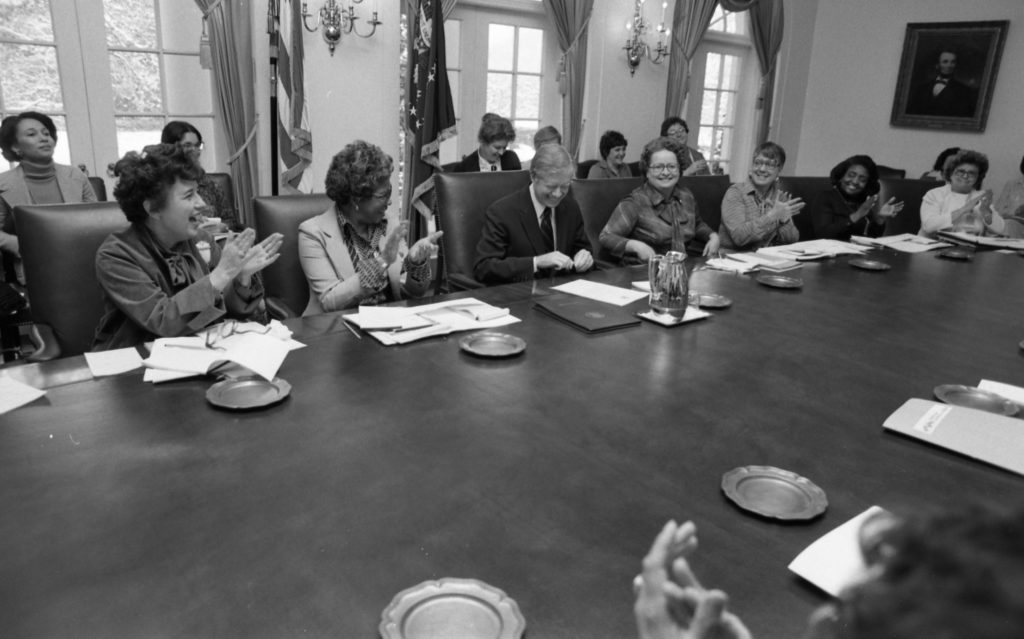
Women's History month celebrates the often overlooked accomplishments and contributions to society that women have made throughout history, as well as their strength and resilience in their historic (and ongoing) fight for equal rights under the law.
Selected to correspond with International Women's Day (March 8th), the celebration and commemoration of women was originally executed as "Women's History Week", in 1978 by the Education Task Force of the Sonoma County Commission on the Status of Women. The following year, a consortium of women's rights historians and groups lobbied for an official national recognition of the week. President Jimmy Carter made a Presidential Proclamation designating the week of March 8th as "National Women's History Week."
In 1987, Congress passed a public law designating March as "Women's History Month." Every U.S. President has issued proclamations each year (since 1995) recognizing the month of March for women (National Women's History Museum, n.d.).


American abolitionist and women's rights activist Sojourner Truth gave her "Ain't I a Woman" speech at the Women's Convention in Akron, Ohio, in 1827. Nkechi recites it at this TEDx event.
A few quick clips of the "Best Speeches on Gender Equality."
Michelle Obama speaks on International Women's Day, 2017.
Tarana Burke founded the #MeToo movement in 2006. In this 2019 Ted Talk, she explains that "Me Too is a movement, not a moment."
Since the establishment of Women's History Month, it has become a tradition that the sitting President of the United States issues a presidential proclamation to commemorate the impact women have had on American society and to address the current events of the time regarding women and women's rights. These proclamations are all around 500 words each and are definitely worth reading to gain insight into what each President thought were the pressing issues of the time and which historic women figures they decided to mention in their speeches.
Citations:
Image Credits: